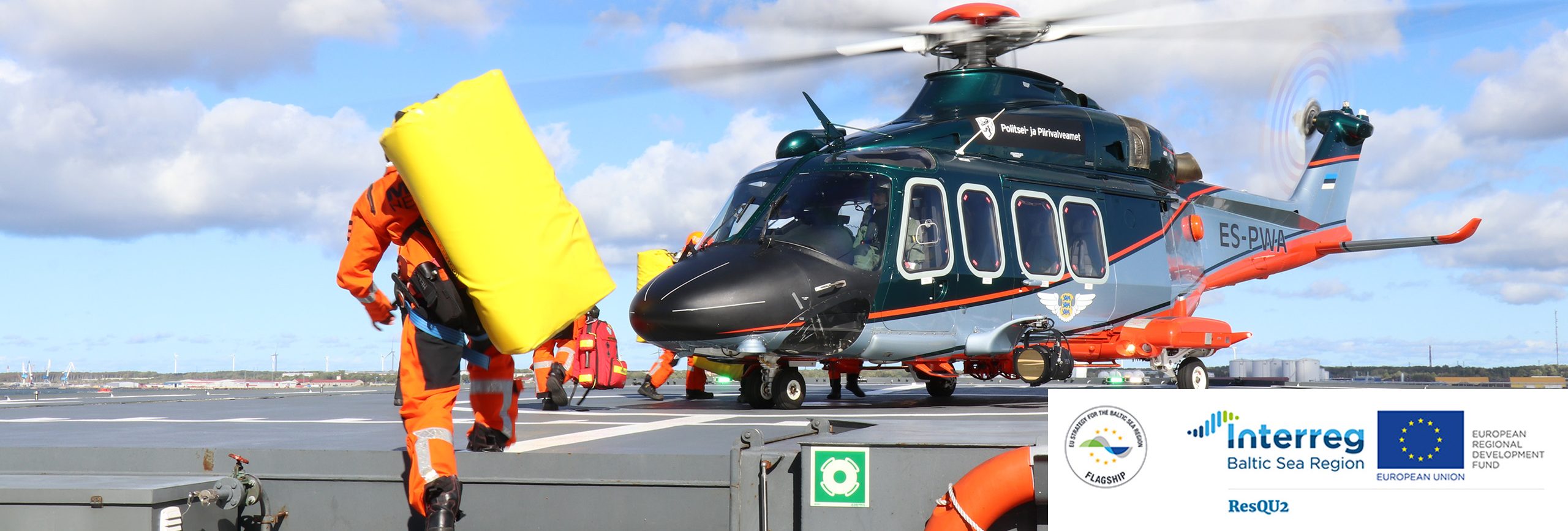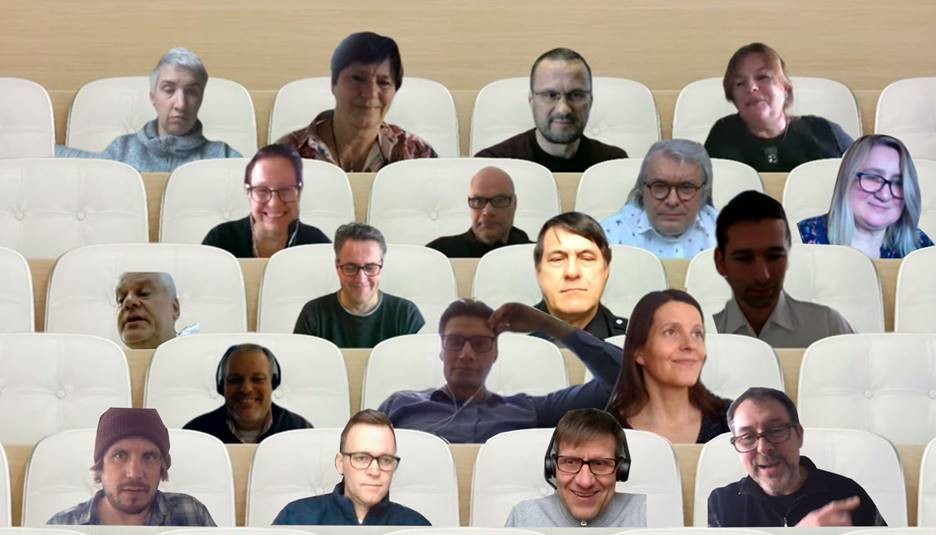ResQU2 concluded its activities in March when its 30 months were up. The final partner reunion was in the ResQU2 Final Conference on 17 March. Online, of course. There partners took stock of the platform achievements: regular projects’ outputs were demonstrated in a number of dissemination and high-level events, peer-to-peer dissemination took place within the partnership, professional networks were enhanced, recommendations to improve rescue operations prepared, and the international coordination group on emergency preparedness was set in motion. Still, one of the most valued outcome was the possibility to get to know your peers and their resources in other regions and countries. This is knowledge that may help save lives one day.
One of the means towards our goal was to disseminate the results of the four finalized Flagship projects ChemSAR, DiveSMART Baltic, HAZARD and MIRG-EX. This was mainly done in ResQU2 events and by organising joint events with external organisations. Due to these events, gained knowledge, skills and expertise were spread further. ResQU2 activities increased the level of knowhow and the capacities in maritime SAR operations and large-scale international exercises at sea and in seaports as a number of competent authorities, agencies, ministries, and SAR professionals were involved.
Is there still something to improve?
ResQU2 partners also wanted to find out what are the new developments in the field of maritime incident response and SAR, and what could be done to further improve emergency preparedness. Once again, the relevance of preparation and cooperation were emphasized in our workshops and questionnaire. Many of the maritime incidents have been investigated and these investigations show that the difference between a well-controlled emergency and an emergency that grows beyond the control of the emergency services is sometimes paper-thin. The conditions prevailing during an incident, such as the type of incident, its initial size, response time, and local circumstances like weather and sea state, are some examples that may have an impact on the effectiveness of the response. So, it is of the utmost importance to have well-prepared emergency response organisations when a large-scale incident takes place. Also, strengthening of the network-capacity, development of a mutual emergency response capacity, and information management were highlighted.
Setting the international coordination group for emergency preparedness in motion
It is generally acknowledged that increased capacity to work in a transnational environment is a great challenge, and the improvement is solely due to cooperation and knowledge of each other’s organizations. During ResQU2, we have therefore aimed to formalize the cooperation and form an international coordination group for emergency preparedness in order to maintain this capacity. To enable this, partners have introduced a policy paper to improve emergency preparedness by focusing on relevant areas and to enhance rescue work in the long run. Its purpose is to further improve safety at sea within the Baltic Sea area by cooperation within selected areas in order to share and transfer knowledge of each other’s competences and resources. It is applicable to long-term management of any chosen area within emergency preparedness. In the project stage, the document is directed to and piloted in the diving community to facilitate the setting up of the international coordination group on emergency preparedness, the working title of which is the “Baltic Diving Council – BDC”. However, we found that it would be only natural to include other SAR functions as well, so the paper is adaptable to emergency preparedness in general. Additionally, the contents of the paper is universal, thus we already have also a Dutch organisation in the group.
Trust is everything
ResQU2 has increased the awareness of our resources, capabilities and procedures, and facilitated more efficient and safe rescue operations by disseminating the achievements of our Flagship projects, bringing professionals of many nations together, and by enhancing transnational co-operation in emergency preparedness in general, As someone said in our workshop on Future development and the relation in maritime incident control held in January, successful co-operation needs trust but trust matures slowly. By knowing your colleagues in other regions and by having joint exercises, one is able to exchange views, learn to “speak the same language”, and to build trust. Knowing each other’s ways of working is essential in cases of real emergencies.
Remember to care for your networks
The ResQU2 project platform started its journey in October 2018 although our cooperation started a long time before that, already during our regular projects’ activities. This is due to the fact that our projects had a joint objective to enhance maritime safety and improve preparedness. The implementation is now over but our network is larger than ever, alive and well.
ResQU2 partners thank all people and organisations involved in our project platform for their contribution.

